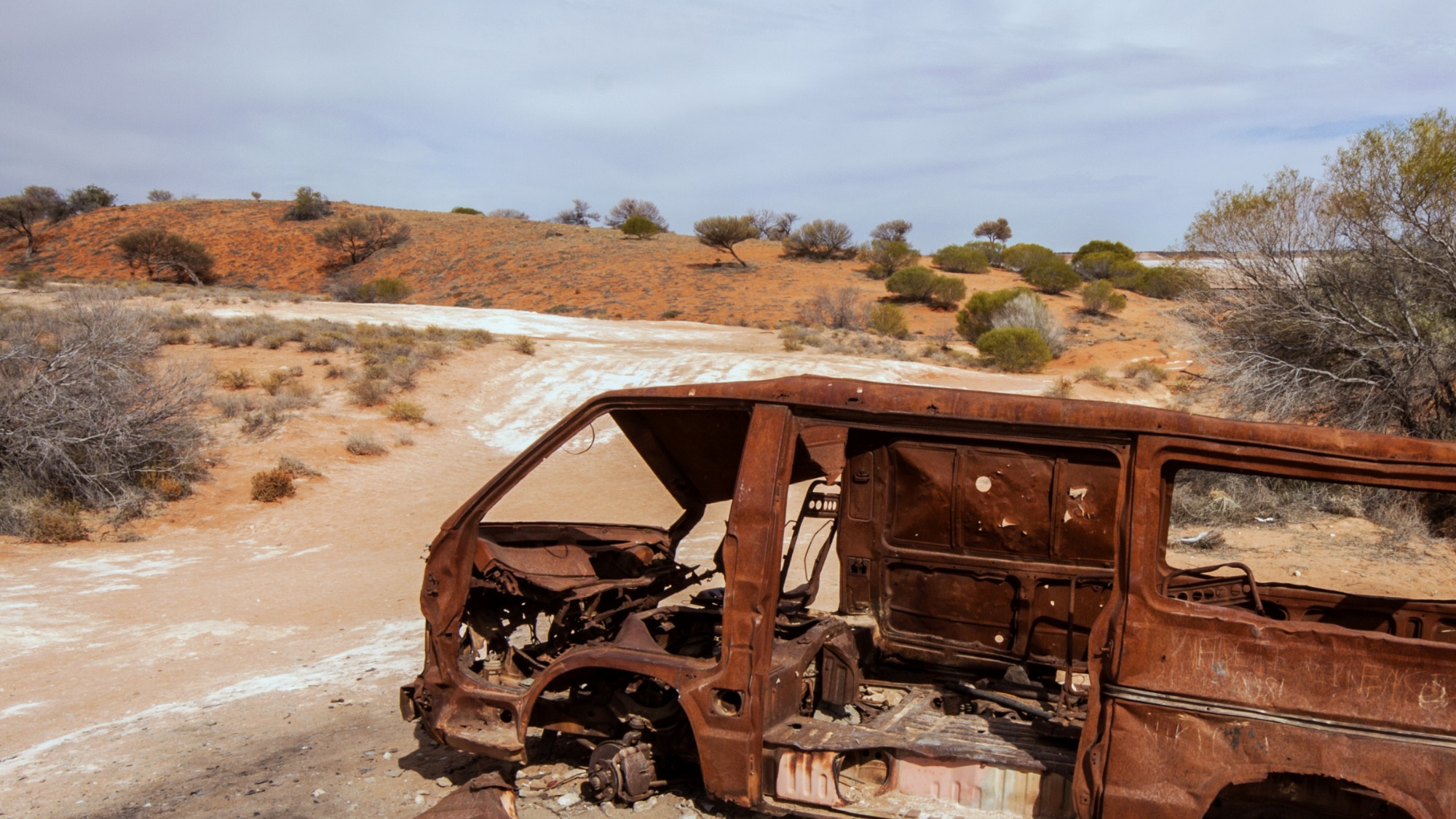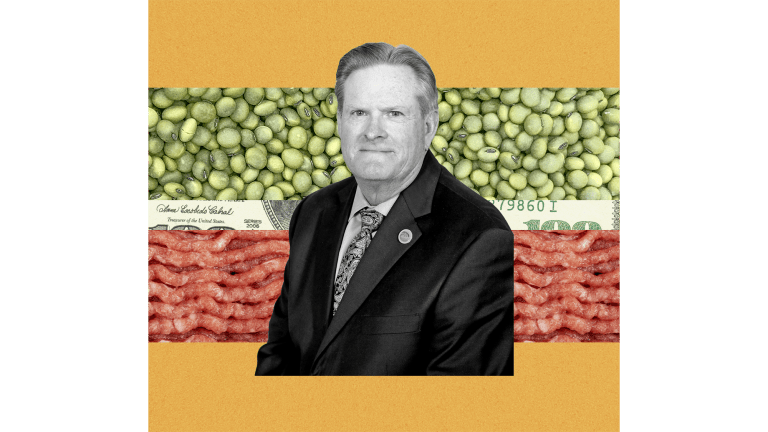The cartoonish stereotype of Australia of yesteryear featured a rough-headed bloke in an Akubra hat wrangling crocodiles. That image has finally been scrubbed from our collective memories — only to be replaced with something worse. Today, when we read news dispatches from Australia, we’re seeing a dunderheaded prime minister cartoonishly wrangling commonsense, becoming the first leader in the warming world to repeal a price on carbon.
It’s like George W. Bush, Crocodile Dundee-style.
Conservative prime minister, climate change denier, and accused misogynist Tony Abbott was elected in September. He started working as the nation’s leader almost immediately, but he had to wait until this month for newly elected senators to take their seats. Abbott’s (conservative) Liberal party still doesn’t control the Senate, but it has found Senate allies in a powerful party that was founded just last year by kooky mining magnate Clive Palmer. Palmer held a press conference with Al Gore last month to announce that he opposed some of Abbott’s climate-wrecking policies, and that he wanted a carbon-trading program to replace the carbon tax. That now seems to have been smokestacks and mirrors. When it came to repealing Australia’s $US23.50 per metric ton carbon tax, the immodestly named Palmer United Party fell into line on Thursday, helping the repeal pass the Senate by a vote of 39 to 32, without demanding the establishment of any alternative.
The vote came just days after new modeling and research revealed that climate change is worsening drought conditions in Australia. Apparently, the drought is also of the intellectual variety.
Abbott has proposed replacing the carbon tax with something he calls Direct Action. That would involve handing out billions of dollars to corporations to help them reduce their greenhouse gas emissions. But Direct Action has not been passed by the Senate, and it might never be passed, meaning that one of the worst per-person climate-polluting countries now has no overarching strategy for reducing that pollution.
“Today’s repeal of laws that price and limit carbon pollution is an historic act of irresponsibility and recklessness,” said John Connor, CEO of The Climate Institute. “Today we lose a credible framework of limiting pollution that was a firm foundation for a fair dinkum Australian contribution to global climate efforts.”
We could bore you with visceral reactions from politicians Down Under. Instead, here are some reactions to the repeal from Australian scientists and academic analysts:
Roger Jones, Victoria University: “It’s hard to imagine a more effective combination of poor reasoning and bad policy making. The perfect storm of stupidity. Bad economics and mistrust of market forces.”
Hugh Outhred, University of New South Wales: “With climate change already underway, repeal of the carbon tax represents dereliction of duty with respect to the rights of young people and future generations. The coalition plan to replace a ‘polluter pays’ policy with a ‘pay the polluter’ policy will exacerbate the budget imbalance while being simply inadequate to the task.”
Roger Dargaville, University of Melbourne: “The Government’s replacement strategy, Direct Action, will fail to reduce emissions as it fails to penalise the largest emitters. Also, Direct Action risks not gaining approval in the Senate as it is unlikely to get the support of [Palmer United Party] Senators. The repeal of the price on carbon is a backwards step and a sad day for the global climate.”
Jemma Green, Curtin University: “Without a domestic emissions trading scheme, Australia will probably use international offsetting to meet its commitments. The Renewable Energy Target and the Clean Energy Finance Corporation will play some role in retooling for the low-carbon economy, but other new policies may be required to fully address this need.”
Peter Rayner, University of Melbourne: “I’m a carbon cycle scientist, my job is to monitor, understand and predict the levels of carbon dioxide in the atmosphere. As an Australian, I’m proud of how much we have contributed to that understanding, but today I’m embarrassed by how poor we are at putting that understanding into practice.”
Correction: This post originally stated that The Climate Institute was a former Australian government agency that morphed into a nonprofit after Abbott took power, but in fact it has always been a nonprofit.



